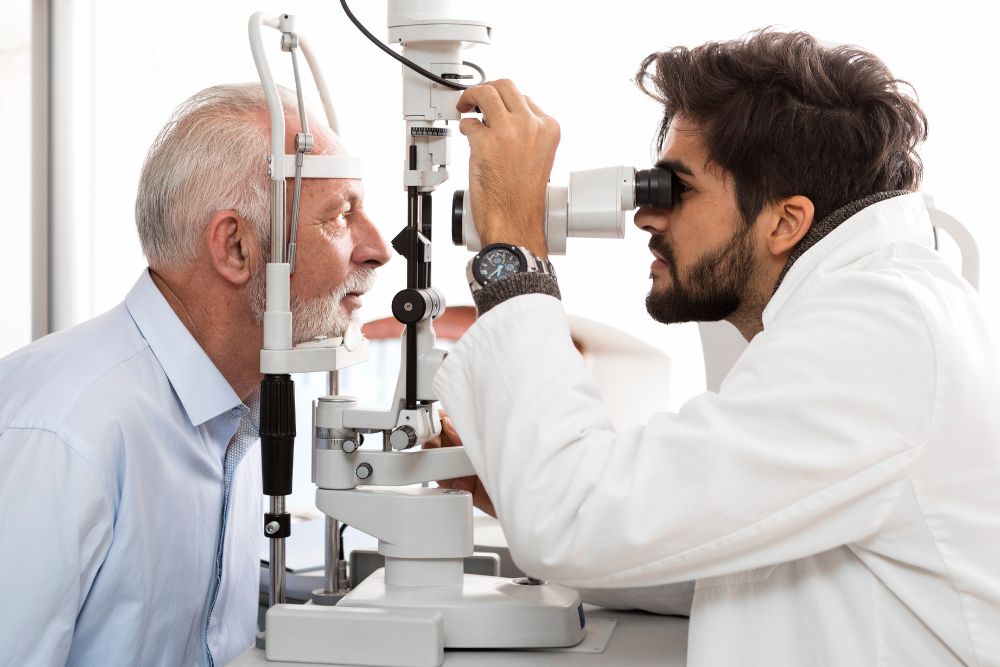Understanding Visual Hallucinations from Vision Loss (Charles Bonnet Syndrome)

Age-related macular degeneration (AMD) is a leading cause of vision loss in older adults. For some individuals, the loss of sight can lead to visual hallucinations as the brain adapts to decreased visual input. This condition, called Charles Bonnet Syndrome (CBS), is not a sign of mental illness, but it may cause distress for patients who are already struggling with vision loss.
Causes and Hallucinations of Charles Bonnet Syndrome
Partial or complete vision loss can cause CBS. When your eyesight diminishes, the brain attempts to compensate for the loss. The retina converts the light we receive and sends signals to the brain to create the images we see. If you have low vision, your eyes can't transmit as much information to your brain. Your brain may try to complete the picture on its own, using your memories or making up new images.
Common CBS hallucinations include:
- Imaginary or fantasy animals like unicorns, dragons, monsters, etc.
- Nature scenes, such as waterfalls, mountains, or bugs
- People or animals you know, including friends, family members, coworkers, neighbors, pets, etc.
- Repeated patterns like brick walls, webs, or other grid-like patterns that repeat the same shape and lines
The hallucinations can be in black and white or color, become more vivid when your eyes are open, or remain still or move, much like in a television show. CBS doesn’t cause you to hear unusual sounds and isn’t associated with a psychological condition.
Diagnosing and Treating Charles Bonnet Syndrome
Your healthcare provider and retina specialist can diagnose CBS. Your provider may give you a neurological exam or use imaging tests like an MRI or CT scan to rule out other issues that can cause hallucinations. A retina specialist can complete a thorough eye exam and diagnose any underlying causes, such as AMD.
There currently isn't a cure for CBS, but there are steps you can take to manage the condition, such as:
- Spending more time in brightly lit environments can reduce hallucinations
- Getting adequate sleep and managing stress
- Blinking or moving your eyes can help dismiss a hallucination
- Spending time with loved ones and finding a CBS support group
Many patients experience fewer hallucinations or stop having them completely once their brain and eyes adjust to reduced vision. Generally, this adjustment period lasts one to two years.
Schedule an Appointment With a Retina Specialist
Charles Bonnet Syndrome can be challenging to deal with, especially if you’re also coping with vision loss due to AMD or other retinal conditions. At Retina Consultants of Texas (RCTX), we’re proud to be the largest retina-only ophthalmology practice in the state, serving patients throughout the Greater Houston and San Antonio areas, including Beaumont, Katy, Kingwood, Livingston, Memorial, Pasadena, Sugar Land, The Woodlands, Stone Oak, Boerne, Schertz, New Braunfels, and more. We’ll work alongside your healthcare team to effectively diagnose and help you manage CBS. Contact us today for more information or to schedule an appointment.








